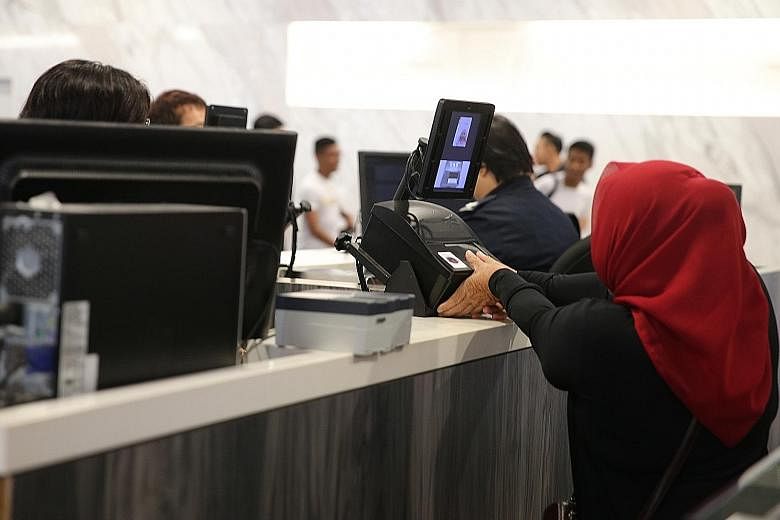Travellers arriving and departing Singapore by sea or land may have their thumbprints scanned at immigration checkpoints from tomorrow, as part of ongoing efforts to boost the country's security levels.
The BioScreen system will be rolled out progressively at passenger halls of all sea and land checkpoints, said the Immigration and Checkpoints Authority (ICA) yesterday. This comes after a successful year-long trial at Tanah Merah Ferry Terminal that has seen more than 120,000 travellers go through the new system since last April, ICA said.
In the months ahead, BioScreen will also be rolled out at the air checkpoints here, the ICA said.
Those aged six and above who use manned counters at immigration checkpoints will have to scan both their thumbprints upon arrival and departure. This will affect foreign visitors and Singaporeans who opt to go through these counters, but not Singapore citizens and permanent residents who use the automated clearance lanes.
At the Woodlands and Tuas land checkpoints, the initial phase will see the system implemented at the manned counters within passenger halls. BioScreen clearance for motorists will be introduced later.
ICA noted that travellers may experience "slightly longer immigration clearance times" as a result. However, it added that it will "monitor the system closely, and will fine-tune and adjust the implementation plans where necessary".
Tampines GRC MP Desmond Choo, who is on the Government Parliamentary Committee for Home Affairs and Law, believes the immigration system will be able to "cope well" despite longer clearance times.
"The evolving and escalated global security threat means that a global passenger transit hub such as Singapore must step up its surveillance and protective work," he said.
The United States started scanning fingerprints of all visitors in 2004, in the aftermath of the Sept 11 terror attacks in 2001. Japan, South Korea and Taiwan have also introduced fingerprint scans from 2007.
Associate Professor Kumar Ramakrishna, head of policy studies at the S. Rajaratnam School of International Studies, said the move "makes sense", given that "Singapore remains an iconic target".
He said: "Biometric technology is a crucial enabling technology that is available now and hence should be exploited, especially since the threat from transnational terrorist groups like ISIS has heightened at this point in time."


